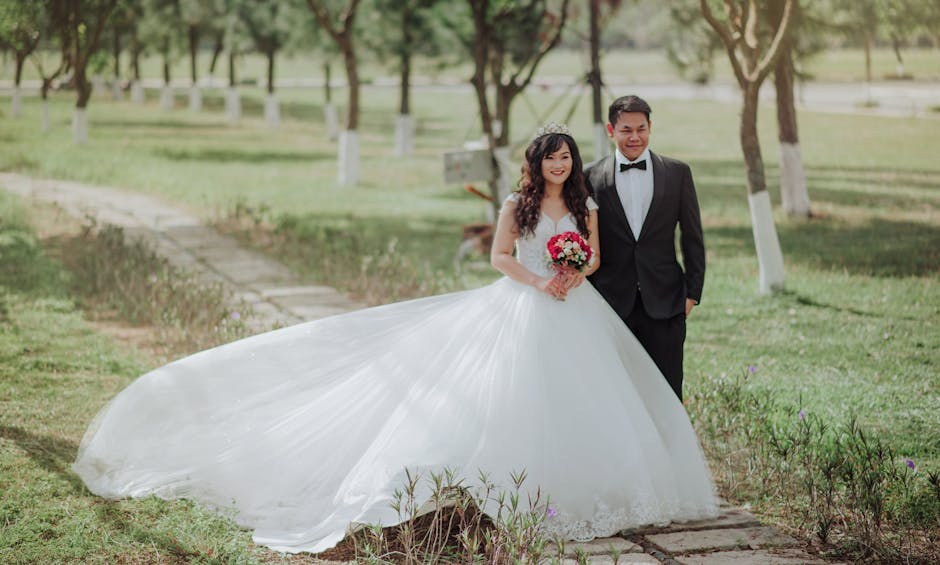Falling for someone can feel like a tidal pull – swift, thrilling, and hard to resist. In that rush, it’s easy to become emotionally invested before you’ve had a chance to learn who the other person really is, or even what you truly want. Attraction and novelty can blur priorities, amplify hope, and nudge you toward choices that would look very different in calmer light. None of this makes you foolish; it makes you human. What does help is pausing long enough to make conscious decisions instead of letting momentum make them for you.
Romance often splits people into two camps: those who open the gates at the first spark, and those who guard every inch of their hearts. Neither extreme serves you well. Throwing yourself into a connection too soon can crowd out the slow work of understanding – while heavy armor can keep closeness out altogether. The middle path asks for patience and observation: let feelings grow, but let knowledge grow with them.
Why pacing yourself changes everything
When early dates go beautifully, the temptation is to fast-forward – more time, deeper talks, bigger promises. Yet speed has a cost. If you rush, you sidestep the ordinary moments where compatibility reveals itself: how you both handle plans, stress, values, and boundaries. You might find yourself already emotionally invested in a version of the relationship that exists mostly in your imagination.

Pacing isn’t about dampening chemistry; it’s about giving chemistry a fair test. You don’t need a crisis to learn about someone – you need a Tuesday. The slower you go, the easier it is to notice your own needs and their patterns, to catch red flags before they become routines, and to let affection settle into something steadier than infatuation.
When attachment outruns reality
Another hazard of a sprint is mistaking intensity for depth. Late-night conversations can feel profound even when you barely know each other’s defaults. If you are already emotionally invested , you may assume the feeling is love when it’s really a heady blend of novelty, hope, and projection. That’s not a failure – it’s a signal to slow down and gather more data about who you both are in everyday life.
Clarity comes from curiosity. Ask questions, watch for consistency, notice how the other person treats your time, your limits, and your joy. The goal isn’t perfection – it’s a fit that can hold up under real life.

Before you put your whole heart behind this connection, use the checklist below. It doesn’t judge your feelings; it protects them. Following it helps you keep caring while also keeping perspective – so you can be emotionally invested with wisdom instead of impulse.
Questions to ask yourself (and each other) before going all-in
-
Are you ready for this stage? Scan your life honestly. Do you have the bandwidth for a new commitment, or are you juggling demands that leave little room for presence and patience? Being emotionally invested takes energy – not only to care, but to communicate, set boundaries, and show up reliably. If you’re stretched thin, affection may turn into pressure, and tenderness into resentment. Readiness isn’t just desire; it’s capacity.
-
Are they ready for this stage? Interest alone doesn’t equal availability. Notice how they manage their time, their responsibilities, and their follow-through. Someone can be charming and still be in a season where they can’t meet you where you are. If you’re emotionally invested while they remain casual or distracted, the mismatch will sting. Look for signals of steadiness – not just words, but patterns.

-
Are you sacrificing your life to fit theirs? New romance can rearrange your calendar overnight. It’s exciting, but be wary of sidelining friends, hobbies, rest, and goals. If every free hour slides toward them, you may be trading your center for their schedule. Being emotionally invested should enrich your life, not hollow it out. Keep your plans. Keep your rituals. Let love complement your world rather than consume it.
-
Do they earn the access you’re giving? Care is precious – treat it that way. Ask whether their actions deserve your attention and trust. Do they show kindness when it’s inconvenient? Do they make room for your feelings? If not, pause. You can be generous and still discerning. If you are emotionally invested while they offer crumbs, you’re training yourself to accept less than you need.
-
Is it mostly chemistry – or also connection? Physical pull can create an illusion of closeness. If most of your time together centers on attraction, try changing the setting and see what remains. Share a daytime errand, cook, take a walk, sit in silence. If the bond still feels alive, wonderful. If not, reconsider whether being emotionally invested makes sense for what this is right now.
-
Do you trust them with your softer places? Vulnerability is the price of intimacy. If your gut is uneasy, listen. Trust grows from consistency – promises kept, boundaries respected, truths told even when awkward. Without it, becoming emotionally invested exposes you to unnecessary hurt. Name your concerns, ask clarifying questions, and watch how they respond to accountability.
-
Are your priorities still anchored? Work, study, health, family – these don’t stop needing you because someone wonderful appeared. Attraction can tempt you to reshuffle everything. Instead, protect the pillars of your life. A stable foundation supports closeness; a neglected one breeds chaos. You can care deeply and still keep your footing.
-
Are you genuinely over your ex? Lingering grief, anger, or nostalgia can distort the present. If old pain is still loud, you might compare unfairly or chase familiar dynamics. Before you get more emotionally invested , give yourself the grace to finish healing. That doesn’t mean the past vanishes – it means it no longer drives your choices.
-
Is the effort reciprocal? Love thrives on mutuality. Notice who initiates, who follows up, who compromises, and who apologizes. If you’re the one planning, adjusting, and reassuring while they coast, the balance is off. Becoming emotionally invested in a one-sided connection is a fast way to burn out. Ask for parity – then see if it shows up.
-
Are you content in your own life? A partner can add joy, not provide it wholesale. If you’re unhappy unless they are near, you risk placing your wellbeing in someone else’s hands. Cultivate sources of meaning that exist whether or not you’re together. From that steadiness, being emotionally invested becomes a choice, not a lifeline.
-
Have you tended to old wounds? Many of us carry trauma – from family, past partners, or other painful chapters. Those injuries don’t disqualify you from love; they ask you to care for them. If you leap ahead without tending to triggers, you may unintentionally project them onto someone new. Before you’re more emotionally invested , notice what still needs gentleness, and seek support that helps you hold it.
-
Do your core values align? Differences can be invigorating; value clashes can be exhausting. Consider your non-negotiables: how you view commitment, family, money, spirituality, ambition, conflict. You don’t need identical answers, but you do need compatible ones. Alignment turns everyday decisions into teamwork rather than tug-of-war.
-
Can you commit without panic? Commitment isn’t a trap – it’s an agreement to show up. If intimacy reliably triggers retreat, examine the fear before you promise more. There’s wisdom in acknowledging your limits. When you do choose to be more emotionally invested , let it be from readiness rather than pressure.
-
Are you prepared for the hard parts? Even the healthiest relationships include friction – misunderstandings, off days, mismatched needs. If you expect a highlight reel, ordinary conflict will feel like catastrophe. When you’re emotionally invested , frustration can spike, but it can also teach you how to repair. Expect imperfection, and choose skills over drama.
-
Are your reasons sound? Look beneath the urge to merge lives. Are you avoiding loneliness, masking stress, seeking validation, or trying to outrun grief? None of these make you bad – they make you human – but they’re shaky foundations. If being more emotionally invested is your plan to fix unrelated pain, the relationship will carry a weight it can’t hold.
If you realize you’re already in deep water
Sometimes the awareness arrives late – the feelings are big, the pace is fast, and perspective is slippery. You don’t need to dramatize or disappear. You can recalibrate with care. Use the next steps to slow the current and regain clarity without turning your heart into stone.
-
Take a step back to sort your feelings. Create space – an evening alone, a quiet weekend morning – and write down what’s happening. What do you feel, what do you know, and what are you guessing? Distance doesn’t cancel affection; it clears the fog so you can see what’s true. Slowing contact even slightly helps your nervous system settle and your judgment breathe.
-
Consult the people who know you best. Friends witness patterns we miss. Share specifics and invite candor. Ask them what they notice about your mood, your boundaries, and the balance of effort. You don’t need a committee to run your love life – you need a mirror that doesn’t flatter or scold, just reflects.
-
Reinvest in your world outside the romance. Return to your rituals: workouts, books, faith practices, art, game nights, volunteering. These aren’t distractions; they’re anchors. The more fully you inhabit your own life, the easier it is to choose closeness for the right reasons – not because you’ve drifted too far from yourself to do anything else.
Choosing with both heart and wisdom
Love thrives when care and clarity travel together. Ask the hard questions, move at a human pace, and stay loyal to your own life as you welcome someone into it. You’re not trying to eliminate risk – that isn’t possible – you’re trying to take the kind of risk that respects who you are. When you decide to become more emotionally invested , let it be because the signals align: readiness in you, readiness in them, and a relationship that keeps proving itself in the sunlight of ordinary days.